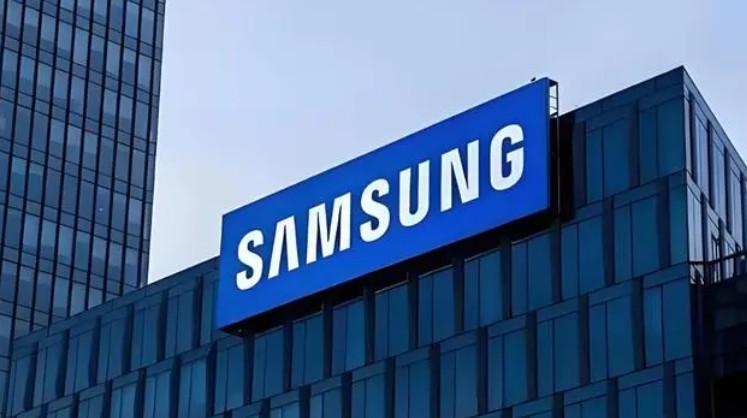
In fierce business competition, Samsung Electronics, as the world's largest manufacturer of storage chips and smartphones, is highly regarded for its every move. However, the recent release of Samsung Electronics' Q3 2024 financial report has sparked widespread attention and concerns in the market. Data shows that Samsung's Q3 operating profit fell by 12.8% month on month, and the head of the chip business issued a rare apology. This incident not only reveals Samsung's backward position in the AI chip field, but also highlights the current fierce competition in the global AI chip industry.
According to the financial report released by Samsung Electronics, the company's operating profit for the third quarter of 2024 was approximately 9.1 trillion Korean won (approximately 6.8 billion US dollars), a nearly threefold increase compared to the same period last year, but a 12.8% decrease compared to the previous quarter. This data is significantly lower than the market expectation of 11.5 trillion Korean won, and also lower than the 10.44 trillion Korean won in the previous quarter. Meanwhile, the company's sales revenue was KRW 79 trillion, which was lower than the market's expected KRW 81.57 trillion. This series of data indicates that Samsung Electronics' performance in the third quarter was not as expected, especially in the chip business.
Faced with this unsatisfactory financial report data, Jun Young hyun, the new head of Samsung Electronics' chip business, issued a rare apology statement. He stated in the statement, "We have raised concerns about the company's technological competitiveness, and some have started talking about the crisis Samsung is facing... As industry leaders, we bear full responsibility for this." This apology not only reflects Samsung's management's profound reflection on poor performance, but also reveals the severe challenges the company faces in the AI chip field.
In recent years, with the rapid development of artificial intelligence technology, the demand for AI chips in the market has sharply increased. However, in this field, Samsung Electronics seems powerless. Compared with competitors such as Nvidia and SK Hynix, Samsung is significantly lagging behind in the research and production of AI chips. NVIDIA, with its outstanding graphics processing unit (GPU) performance, has become a standard configuration for many AI applications, while Samsung's competition with TSMC in custom chip foundry production has not been effective.
In addition, Samsung's layout in the field of high-performance computing is relatively lagging behind. With the development of generative artificial intelligence technology, the demand for high-performance computing power is increasing day by day. However, Samsung's investment and research and development achievements in this field are not significant, leading to a decline in its competitiveness in the AI chip market.
Samsung's lagging position in the field of AI chips is not only reflected in technology research and development, but also in market share. According to market research institutions, Samsung's market share in the AI chip market is much lower than its competitors such as Nvidia and Intel. Especially in the high-end HBM3E chip market, Samsung's sales to a major customer have been delayed, further exacerbating its predicament in the AI chip market.
In addition, Samsung is also facing fierce competition from Chinese chip rivals. Chinese chip companies have made significant progress in the field of AI chips in recent years, not only improving product quality and performance, but also seizing market share by reducing costs and expanding production capacity. This poses enormous pressure on traditional chip manufacturers such as Samsung.
Facing the challenges and backwardness in the field of AI chips, Samsung Electronics needs to adopt proactive and effective response strategies. Firstly, the company should increase its research and development investment in the field of AI chips to enhance its technological innovation capabilities. By introducing outstanding talents and strengthening cooperation with international leading enterprises, we can accelerate product iteration speed and enhance market competitiveness.
Secondly, Samsung should re-examine its strategic direction, especially its investments in AI chips and high-performance computing. The company should develop a long-term development plan, clarify market positioning and target customer groups, and respond to competition with more precise market strategies.
In addition, Samsung should actively explore the practical application of AI technology in daily products. Enhance brand influence and market share by improving user experience and product quality. At the same time, the company should strengthen its connections and cooperation with the international market, expand overseas market channels and partner networks.
Looking ahead, as the global demand for AI technology continues to grow, Samsung Electronics' layout in the AI chip field becomes particularly important. Although currently facing many challenges and difficulties, as long as Samsung can adhere to the innovation driven development strategy, strengthen international cooperation and exchanges, continuously improve its own strength and market competitiveness, I believe it will definitely achieve breakthroughs and rise in the field of AI chips.

Recently, a series of corporate borrower fraud cases have been exposed on Wall Street, implicating institutions such as Jefferies, First Brands, Zions Bank, and Western Union Bank, with massive loan losses triggering market panic.
Recently, a series of corporate borrower fraud cases have b…
According to a report citing the Messenger Post of Papua Ne…
In the latest meeting minutes released by the Bank of Japan…
November 4th witnessed a "day of terror" in the cryptocurre…
On October 26th local time, Tesla's CEO Elon Musk announced…
When the US National Nuclear Security Agency fell into an "…